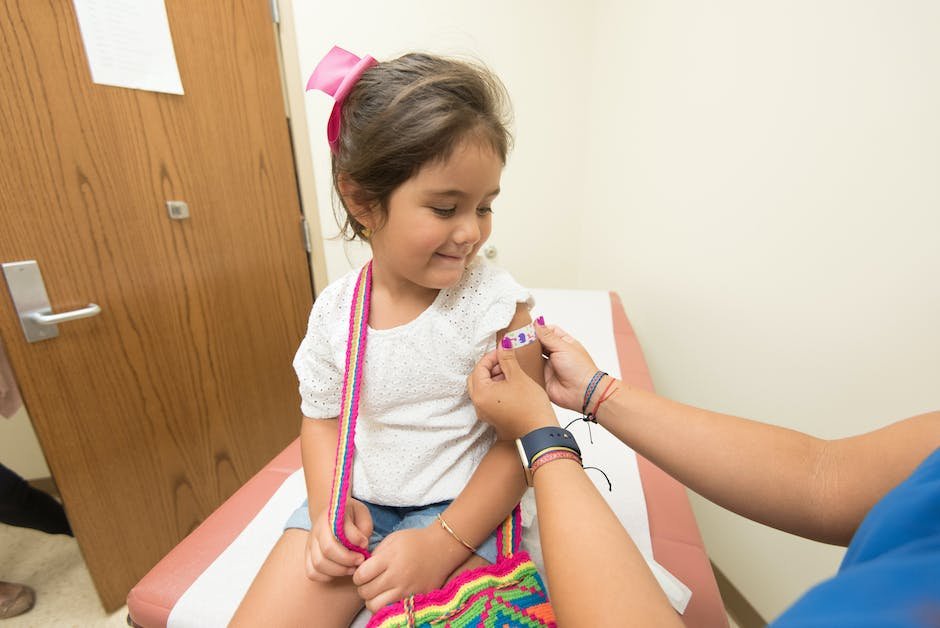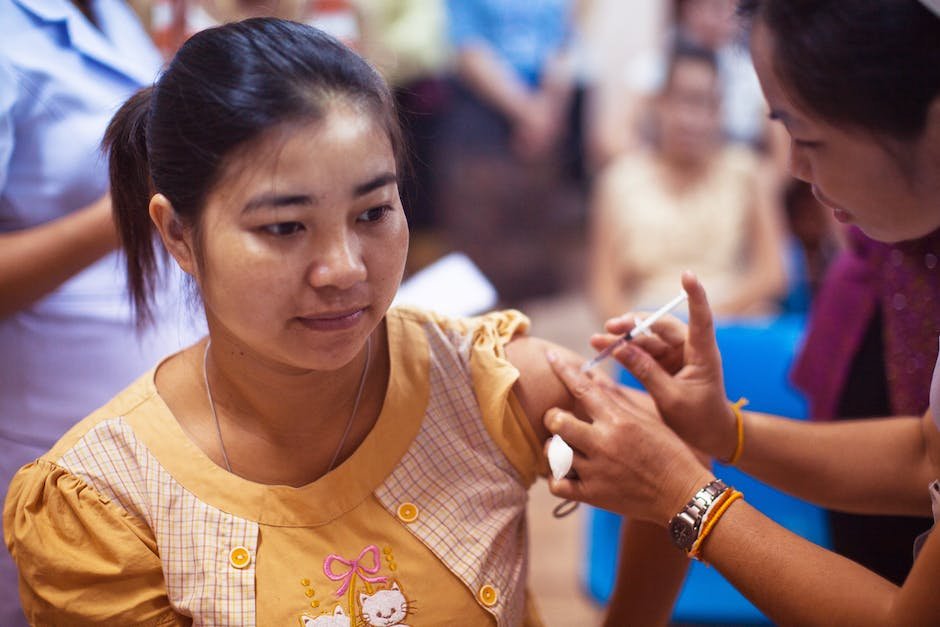
In the panorama of public health, vaccines have been instrumental in controlling, and in some cases even eradicating, dangerous diseases. One such important vaccine is the MMR (Measles, Mumps, and Rubella) vaccine, globally used to protect individuals, particularly children, from these highly contagious diseases. However in recent years, a controversy initiated by a misrepresented study has instigated widespread fear and skepticism, falsely linking the MMR vaccine to autism.
Understanding the MMR Vaccine
The MMR vaccine is a critical medical breakthrough that has the potential to wield significant impact on our children’s health and well-being. As parents, we often hear of it, but what exactly is the MMR vaccine? It’s a combination vaccine designed to protect against three significant diseases: measles, mumps, and rubella. Hence, the MMR acronym is derived from the first letters of these contagious conditions.
Measles is a potentially severe disease, primarily affecting children, which can lead to pneumonia, encephalitis, and even death. Mumps can lead to deafness, meningitis, painful swelling of the testicles or ovaries, and rarely, death. Rubella, while generally mild in kids, can cause severe harm to unborn babies if a woman contracts it while pregnant.
Engage further, dear readers, because the stakes surrounding the MMR Vaccine are high. The severity and prevalence of these diseases make the MMR vaccine a significant player in public health. When the majority of a community gets vaccinated, it creates what’s known as “herd immunity,” protecting those unable to receive vaccines – like infants and people with certain health conditions – from catching these diseases. So, not only are you safeguarding your own bundle of joy, but you are also playing a vital role in preserving the health of the whole community. There’s something truly heartening about knowing that, as parents, we can contribute to the defense against these potentially dangerous diseases in such an immediate and tangible way.

The Origin and Spread of the MMR/Autism Myth
The conception that the MMR vaccine could induce autism, a pivotal and rather perturbing topic, is rooted primarily in a 1998 study led by a British surgeon named Andrew Wakefield. Published in a reputable medical journal, Wakefield’s study dove into a small group of children who were battling both gastrointestinal problems and developmental regression, a condition usually linked with autism. He hypothesized – rather controversially and with limited supporting data – that the MMR vaccine could be the causal link between the two conditions. The mix of uncertain parents, sensationalized media outlets, and a hot-button issue led to this hypothesis being disseminated globally, despite its shaky scientific foundation.
As the idea of this potential correlation took root, it became a snowball gathering momentum, largely fueled by social media and earnest yet sometimes misinformed celebrities. Communication avenues were brimming with anecdotes spotlighting the supposedly harmful effects of the MMR vaccine, and in no time, the doubts escalated to nightmarish proportions. Parents began to question the need for the MMR vaccine and many opt out, resulting in a resurgence of measles, mumps, and rubella cases globally. As the panic spread, thankfully so did efforts to debunk this controversial claim. Medical professionals, researchers, and scientists vehemently carried out numerous rigorous and comprehensive studies, categorically stating that not only was Wakefield’s study profoundly flawed, but there’s no evidence that MMR causes autism. Despite this, the damage was done, and the myth still persists in certain circles today. It’s a poignant reminder of the immense and lasting effect misinformation can have, particularly when it pertains to something as fundamental as our children’s health.

Scientific Evidence Debunking the MMR/Autism Link
Now, let’s delve into the infamous 1998 study by Andrew Wakefield that stirred the pot, linking the MMR vaccine to autism. This research suggested that children who received the MMR vaccine were more likely to develop autism, leading to a wave of fear and skepticism. The study heavily implied that the vaccine was causing gastrointestinal problems, which in turn were leading to developmental regression in children. Unfortunately, this hypothesis spread far and wide not solely due to the influence of the study itself, but also as a result of uncertain parents and sensationalized media.
Social media platforms and some celebrities, ill-informed about the nuances of the study, propagated this hypothesis. This led to a surge in parents opting out of the MMR vaccine for their children, believing they were avoiding the risk of autism. In turn, there was a distinct resurgence in the occurrence of measles, mumps, and rubella – diseases easily preventable through vaccination. This put the health of many children in jeopardy and increased the risks of outbreak for these diseases.
However, researchers worldwide took this claim seriously and engaged in extensive studies to investigate the alleged link between the MMR vaccine and autism. Multiple research conducted over the past two decades collectively concluded that there is absolutely no substantial evidence that the MMR vaccine causes autism. Medical professionals, researchers, and scientists around the globe have supported this conclusion, stating definitively that the MMR vaccine is safe and effective. Yet, the repercussions of misinformation can be deep-seated, and we still battle the effects today with vaccine hesitancy and dismissal. It’s a classic case of how a single piece of misinformation can put public health at risk, emphasizing the importance of trusting science and its dedicated, rigorous investigative processes.

The Benefits of Vacccination and Importance of Herd Immunity
Vaccinations are not just critical for maintaining individual health, they also have a profound impact on community health. When vaccination rates are high, the spread of diseases is limited, effectively protecting those who cannot be vaccinated due to specific medical conditions or age. This community protection is commonly referred to as herd immunity. The beauty of herd immunity is that it creates a protective barrier around the most vulnerable amongst us. In other words, when you choose to vaccinate, you’re not just protecting your own loved ones, you’re becoming a guardian for your community.
However, it’s no secret that vaccines, especially the MMR (Measles, Mumps, and Rubella) vaccine, have been surrounded by controversy over the past few decades. Misinformation has played a significant role in this saga. Beginning with the flawed 1998 study led by Andrew Wakefield, a wave of fear and skepticism about vaccines’ safety arose. Despite being debunked and retracted, the fraudulent link claimed between the MMR vaccine and autism still echoes in our society. Both traditional media platforms and social media unknowingly or knowingly contributed to magnify this unfounded fear, leading to vaccine hesitancy.
The conclusion from the scientific community is clear and unanimous: there is no evidence that MMR vaccine causes autism. Yet, the effects of the lingering misinformation are evident. Measles, a disease declared eradicated from the U.S. in 2000, saw a shocking comeback in recent years. This resurgence is a stark reminder that choosing not to vaccinate could bring back diseases that were once nearly eliminated. Counteracting this requires understanding that vaccines are a tried and tested shield that protects not only our children but also our communities. Trusting science and undertaking a collective responsibility is the way forward to uphold community health. After all, our choices as parents go beyond our living rooms – they shape the world our children grow up in.

Despite the instigated fears and robust speculation regarding the MMR vaccine’s safety, massive scientific research consistently affirms the absence of any link to autism. The benefits of the MMR vaccine transcend personal protection, extending to community-wide safeguarding through the concept of herd immunity. Receiving vaccines, like MMR, not only shields us from debilitating diseases but also protects those unable to receive vaccinations due to medical conditions, thereby enhancing community-wide health security. Denying the weight of misinformation and embracing a scientific approach towards understanding vaccines will ensure the health and safety of individuals and societies alike.





